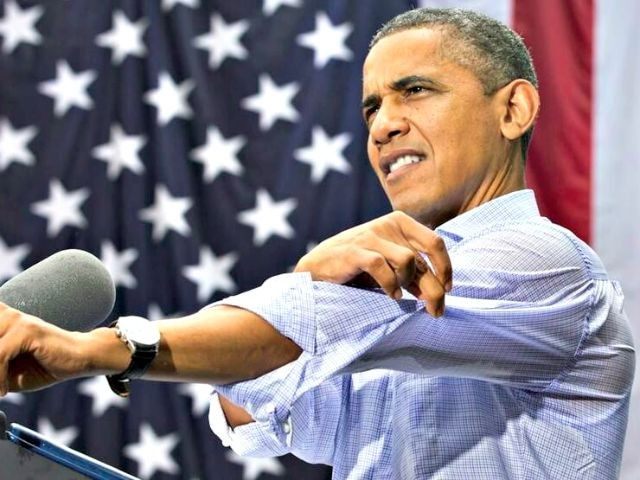President Obama joined the National Rx Drug Abuse and Heroin Summit in Atlanta this afternoon to discuss the problems of drug addiction and the importance of treating it as a disease instead of a character flaw.
Obama explained at the summit that he was going to be “blunt,” since his was in his last year of office, and he criticized people for ignoring the problem in the past.
“The populations affected in the past were viewed as — or stereotypically identified as — poor, minority, and as a consequence the thinking was it is often a character flaw in those individuals who live in those communities and it’s not our problem that they are just being locked up,” Obama said.
He pointed out that the problem had now moved beyond the inner cities, making more people less interested in incarceration as a solution for the problem.
“Lo and behold it turns out that if there is a market for heroin in inner city in Baltimore, it’s not going to take long for those drugs to find their way to a wealthy suburb outside of Baltimore,” he said.
Obama explained that it was obvious that even High School kids had access to hard drugs, even in wealthy communities, citing his own daughters as an example.
“I now have kids in High School, and I’m well aware that their ability to access legal or illegal substances is very high,” he said. “They are just less likely to get in trouble, get thrown in jail, and have a permanent felony record than those kids who live in those inner cities.
During the event, Obama alluded to his own experience with illegal drugs, but said he was “lucky” that he didn’t become addicted or arrested as a result.
“In many ways I was lucky because for whatever reason, addiction didn’t get its claws in me,” he said, admitting that although he was once addicted to cigarettes, it was different than getting addicted to hard drugs.
He expressed concern that the United States was a populace that was “self medicating” as a result of problems in their lives including anxiety, mental health, and the lack of coping skills.
“We have an entire industry that says we’re going to help you self-medicate,” he said, pointing out that the line between alcohol addiction and harder illegal substances was very thin.
“One of the things that’s changed in this opioid debate is the recognition that this reaches everybody,” he said.

COMMENTS
Please let us know if you're having issues with commenting.